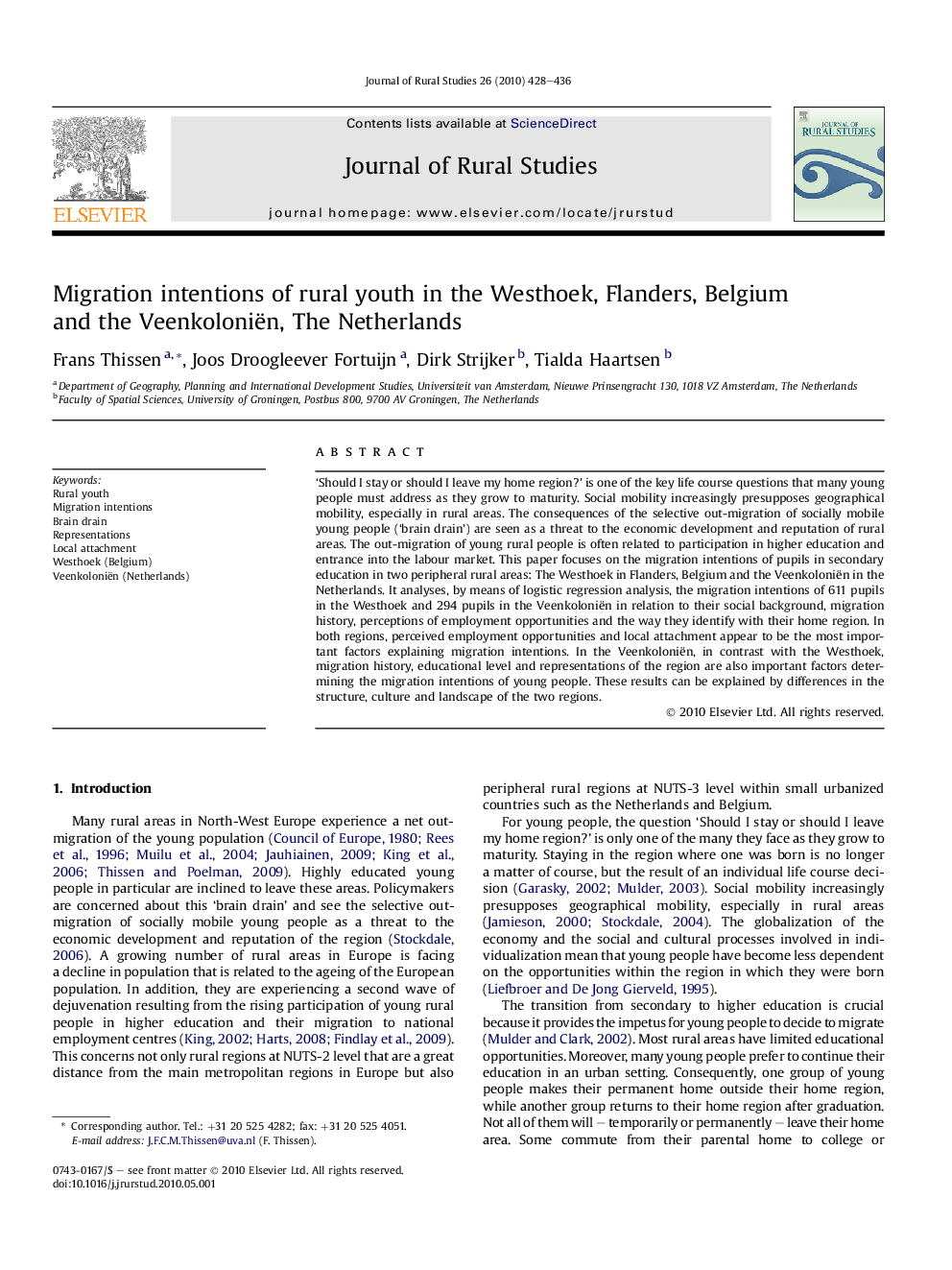| Article ID | Journal | Published Year | Pages | File Type |
|---|---|---|---|---|
| 92766 | Journal of Rural Studies | 2010 | 9 Pages |
‘Should I stay or should I leave my home region?’ is one of the key life course questions that many young people must address as they grow to maturity. Social mobility increasingly presupposes geographical mobility, especially in rural areas. The consequences of the selective out-migration of socially mobile young people (‘brain drain’) are seen as a threat to the economic development and reputation of rural areas. The out-migration of young rural people is often related to participation in higher education and entrance into the labour market. This paper focuses on the migration intentions of pupils in secondary education in two peripheral rural areas: The Westhoek in Flanders, Belgium and the Veenkoloniën in the Netherlands. It analyses, by means of logistic regression analysis, the migration intentions of 611 pupils in the Westhoek and 294 pupils in the Veenkoloniën in relation to their social background, migration history, perceptions of employment opportunities and the way they identify with their home region. In both regions, perceived employment opportunities and local attachment appear to be the most important factors explaining migration intentions. In the Veenkoloniën, in contrast with the Westhoek, migration history, educational level and representations of the region are also important factors determining the migration intentions of young people. These results can be explained by differences in the structure, culture and landscape of the two regions.
